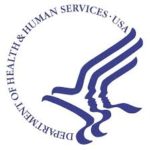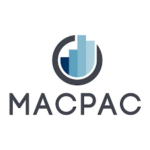The following is the latest health policy news from the federal government for August 3-8. Some of the language used below is taken directly from government documents.
 No Surprises Act
No Surprises Act
A federal appeals court has upheld a February lower court ruling that found that the current No Surprises Act’s arbitration process for addressing payment disagreements between payers and providers favored payers by giving too much weight to “qualifying payment amounts,” which are the median of what insurers contract to pay providers in a given geographic area. Learn more from the appeals court’s decision in the case.
Department of Health and Human Services
- HHS’s Health Resources and Services Administration (HRSA) is seeking permission from the Office of Management and Budget (OMB) to initiate a new data collection process involving the 340B prescription drug discount program. By law, HHS must promulgate regulations establishing and implementing a binding 340B administrative dispute resolution (ADR) process for certain disputes arising under the 340B program; this 340B ADR process is intended to resolve claims by covered entities that they have been overcharged for covered outpatient drugs by manufacturers and to resolve claims by manufacturers that a covered entity has violated the prohibition on diversion or duplicate discounts. In April, HRSA published a final rule presenting the requirements for filing 340B ADR claims. This information collection request is limited to the initiation of the 340B ADR process and the uploading of related documents. HRSA will use the information gathered in the 340B ADR initiation process to determine if a claim submitted meets the statutory requirements for filing a 340B claim and using the 340B ADR process. Learn more about what information HRSA seeks, why it seeks it, and the administrative burden the agency projects for submitting this information from this agency announcement. The deadline for submitting comments is October 7.
 Last month, HRSA’s Office for the Advancement of Telehealth held a conference that brought together public and private sector leaders to discuss telehealth best practices. Sessions addressed efforts to expand access to tele-behavioral health services through interstate licensure; the implications of health policy to inform telehealth’s future; opportunities for telehealth to expand access to services for underserved and low-income communities; health care innovations in telehealth; and expansion of broadband connectivity and adoption of telehealth to improve health equity. Now, HRSA has posted a summary of the sessions and videos of those sessions. Go here for links to these materials.
Last month, HRSA’s Office for the Advancement of Telehealth held a conference that brought together public and private sector leaders to discuss telehealth best practices. Sessions addressed efforts to expand access to tele-behavioral health services through interstate licensure; the implications of health policy to inform telehealth’s future; opportunities for telehealth to expand access to services for underserved and low-income communities; health care innovations in telehealth; and expansion of broadband connectivity and adoption of telehealth to improve health equity. Now, HRSA has posted a summary of the sessions and videos of those sessions. Go here for links to these materials.- HRSA has awarded nearly $9 million to 18 HRSA-funded health centers to improve access to cancer screenings in underserved communities. Health centers will partner directly with National Cancer Institute-designated cancer centers to expedite patient access to care. Learn more about the grants and their intended use and find a list of the grant recipients in this HHS news release.
- HHS has issued division-specific language access plans for agencies within the department, including CMS, HRSA, the FDA, the CDC, and others. Learn more about the objectives of this undertaking and find links to the individual language access plans from this HHS news release.
Centers for Medicare & Medicaid Services
- CMS is seeking OMB permission to reinstate an information collection request that expired in 2017 that sought data relevant to hospitals’ Medicare conditions of participation. Specifically, this reinstatement incorporates additional information collection requirements associated with a number of new conditions of participation for hospitals and critical access hospitals regarding obstetrical services. Learn more about the data CMS seeks, its intended use, and the administrative burden CMS anticipates from this CMS announcement. The deadline for stakeholders to submit comments is October 7.
- CMS has issued a final procedural notice outlining a Medicare coverage pathway to achieve more timely and predictable access to certain new medical technologies for people with Medicare. This new Transitional Coverage for Emerging Technologies (TCET) pathway for certain FDA-designated breakthrough devices should increase the number of national coverage determinations (NCDs) that CMS will conduct every year and seeks to support both improved patient care and innovation by providing a clear, transparent, and consistent coverage process while maintaining appropriate safeguards for the Medicare population. CMS anticipates accepting up to five TCET candidates a year and, for technologies accepted into and continuing in the TCET pathway, CMS’s goal is to finalize an NCD within six months after FDA market authorization. Learn more about the TCET pathway from this CMS fact sheet and this pre-publication version of the official regulation.
After HHS Secretary Becerra declared public health emergencies for states affected by Hurricane Debby, CMS issued a series of waivers and flexibilities for health care providers in those areas. Find those waivers and flexibilities here.
- CMS has posted a bulletin presenting January 2025 updates of ICD-10 and other coding revisions to national coverage determinations (NCDs). This is a maintenance update of ICD-10 conversions and other coding updates specific to NCDs. These NCD coding changes are the result of newly available codes, coding revisions to NCDs released separately, or coding feedback. Find the bulletin here.
- CMS has issued to states an informational bulletin summarizing state obligations for Medicaid coverage of family planning services and supplies and state options for helping to ensure timely access to these services. Specifically, this bulletin gives states guidance on requirements for the coverage of family planning services and supplies, strategies to reduce barriers and increase access to contraception, confidentiality protections for those seeking family planning services and supplies, and information on quality measures. Learn more from this CMS informational bulletin to state Medicaid and CHIP programs.
- CMS has posted meeting materials from the Medicare Advisory Panel on Clinical Diagnostic Laboratory Tests:
- recording from July 25, 2024 – Passcode: v9P8rC%Y
- recording from July 26, 2024 – Passcode: G?=W7EmY
- panel voting results (ZIP)
- CMS has posted four informational/instructional videos on its YouTube channel:
HHS Newsletters
- CMS – MLN Connects – August 8
- AHRQ News Now – August 6
- HRSA eNews – August 1 (includes funding opportunities)
 Medicaid and CHIP Payment and Access Commission (MACPAC)
Medicaid and CHIP Payment and Access Commission (MACPAC)
In a new issue brief, MACPAC uses data from the 2021 and 2022 National Survey of Children’s Health to compare demographic and health characteristics of children and youth with special health care needs to those without special health care needs. It also compares experiences between the groups with gaining access to care, quality of care, insurance adequacy, and transition planning between Medicaid-covered children and youth with special health care needs and based on the type of insurance: Medicaid/CHIP, private insurance, and no insurance. MACPAC found several differences in gaining access to care and other health-related services, insurance adequacy, and out-of-pocket costs across all insurance types but many similarities in experiences with transition planning. Learn more from the new MACPAC report “Access in Brief: Children and Youth with Special Health Care Needs.”
 Stakeholder Events
Stakeholder Events
CMS – 2024 “Rural Health Hackathon” – August 14, 22, and 29
In August CMS and its Center for Medicare and Medicaid Innovation will hold a series of collaborative sessions, to be held in person, designed to generate and develop creative and actionable ideas to address rural health challenges. The event seeks to build on CMS’s outreach to rural communities through site visits and listening sessions to better understand rural health care issues. At these sessions CMS will bring together rural health community care providers, community organizations, industry and tech entrepreneurs, funders, policy experts, and beneficiaries to attempt to take advantage of the collective experience and expertise of participants to generate new ideas to address some of the top challenges affecting health care in rural health settings and drive action to improve clinical outcomes, increase access, and foster a better care experience for patients and providers in rural communities. Hackathon events will be held in person on August 14 in Bozeman, Montana; on August 22 in Dallas; and on August 29 in Wilson, North Carolina. Learn more about the event, including how to participate in person or submit ideas virtually, from this CMS announcement.
HHS – Assistant Secretary for Technology Policy/Office of the National Coordinator for Health IT – HTI-2 Proposed Rule Patient, Payer, Provider API Information Session – August 15
HHS’s Assistant Secretary for Technology Policy/Office of the National Coordinator for Health IT will hold an information session on its proposed rule to improve patient engagement, information sharing, and public health interoperability, frequently referred to as HTI-2, on Thursday, August 15 at 2:00 (eastern). Go here to register to participate.
CMS – Maternal Health Webinar – August 20
CMS will hold a maternal health webinar on Medicaid and CHIP program collaborations with hospitals on AIM (Alliance for Innovation on Maternal Health) bundles on Tuesday, August 20 at 2:00 (eastern). Go here to register to participate.
FDA –Implementation of New In Vitro Diagnostic Products Regulation – August 22
Earlier this year the FDA issued a final rule amending its regulations to make explicit that in vitro diagnostic products (IVDs) are devices under the Federal Food, Drug, and Cosmetic Act, including when the manufacturer of the IVD is a laboratory. At the time, the FDA outlined a policy to phase out its general enforcement discretion approach to laboratory-developed tests. On Thursday, August 22 at 1:00 (eastern) the FDA will host a webinar for laboratory manufacturers and other interested stakeholders to discuss how to comply with medical device reporting requirements, correction and removal reporting requirements, and quality system requirements regarding complaint files beginning May 6, 2025. Go here for more information about the webinar and how to participate.
CMS – Advisory Panel on Hospital Outpatient Payment Meeting – August 26-27
CMS’s Advisory Panel on Hospital Outpatient Payment will meet virtually on Monday, August 26 and Tuesday, August 27. The purpose of the panel is to advise the Secretary on the clinical integrity of the Ambulatory Payment Classification groups and their associated weights, which are major elements of the Medicare hospital outpatient prospective payment system, the ambulatory surgical center payment system, and the supervision of hospital outpatient therapeutic services. The panel invites presentations and comment letters. Learn more about the panel, submitting materials, and how to participate in the meeting from this CMS notice.
CMS – Rural Health Open Door Forum – August 29
CMS will hold an open-door forum for rural health providers on Thursday, August 29 at 2:00 (eastern). Go here to register to participate.
MedPAC – Commissioners Meeting – September 5-6
MedPAC commissioners will hold their next public meeting on Thursday, September 5 and Friday, September 6. The meeting agenda and information about participating in the meetings in person or remotely are not yet available but when they are they will be posted here.
CMS – Maternal Health Webinar – September 17
CMS will hold a maternal health informational webinar offering an overview of maternal health affinity groups and the expression-of-interest process on Tuesday, September 17 at 2:00 (eastern). Go here to register to participate.
MACPAC – Commissioners Meeting – September 19-20
MACPAC commissioners will hold their next public meeting on Thursday, September 19 and Friday, September 20. The meeting agenda and information about participating in the meetings in person or remotely are not yet available but when they are they will be posted here.

 After HHS Secretary Becerra
After HHS Secretary Becerra  Stakeholder Events
Stakeholder Events